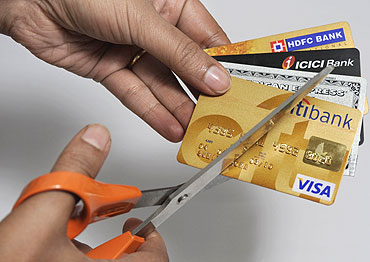Successful investing is essentially allocating your money now in a way that it's total value will increase and your return will be greater than your initial investment. You can read a definition here. There are many forms of investment:
- raw materials (gold, silver, etc...)
- shares of stock in a company
- mutual funds
- property
- start a business
That is just to name a few examples. This is not about how you invest, but when you should start. Before you start investing you should ask yourself a few questions:
Question 1
Am I out of debt?
If you owe money and are paying interest with your payments, focus on getting out of debt before you think about any other types of investment. I say any other because getting out of debt can actually be a form of investing. If you think about it, when you invest more of your money into paying off debt, you are decreasing the total amount you will be paying in the future because you won't be paying as much in interest. This is as good as making money.
You don't have to have your house completely paid off in order to start investing. Just make sure you are on top of your mortgage payments (preferably ahead). Home and property ownership can actually be a form of investment when done wisely.
Question 2
Am I prepared for emergencies?
Bad things happen and you need to be prepared for that before you start trying to invest. Because you don't know when disaster will strike, it is a good idea to have some extra money saved up to hopefully keep you on your feet. People suggest having different amounts saved from as low as 3 times your monthly income up to 6 months or more. If you are just starting out, start setting incremental goals to save up for. Maybe start with a $500 goal for an emergency fund. Then shoot for $1,000. You can keep setting higher goals until you feel you are prepared to handle any emergency that could cause you financial damage. This is just personal preference. Do what you can. I would personally like to get up to 6 months someday.
Question 3
Do I understand the risks involved?
When you invest your money, you need to understand that this is life and something can always go wrong. You could purchase property in an area that you think is going to grow, but it ends up going the other direction and your property loses a lot of value. You could also purchase stock in a company that appears to be doing really well, but it turns out to be involved in fraudulent activities and you lose most of that investment. This is just reality. But you also don't want to think that this will always happen.
One way to mitigate some risk is to learn about the type of investment you are getting into and how to do it. If you know what to look for, you can be better prepared to make lower risk investments that are still good. Be knowledgeable about what you are going to invest in. Research it, follow it in the news and talk to others. Don't invest on a whim. Don't just jump on the bandwagon because everyone else is. Be patient and only make moves on your investments when you are ready.
I feel that investing can be a wise use of money as an alternative to just keep on piling it into a savings account. I recommend investing only after you are somewhat financially stable. So, take these three questions into consideration before you begin.


